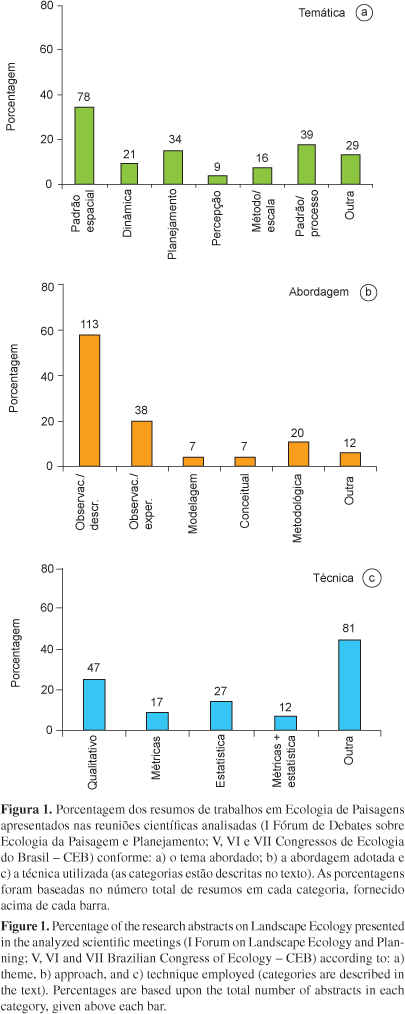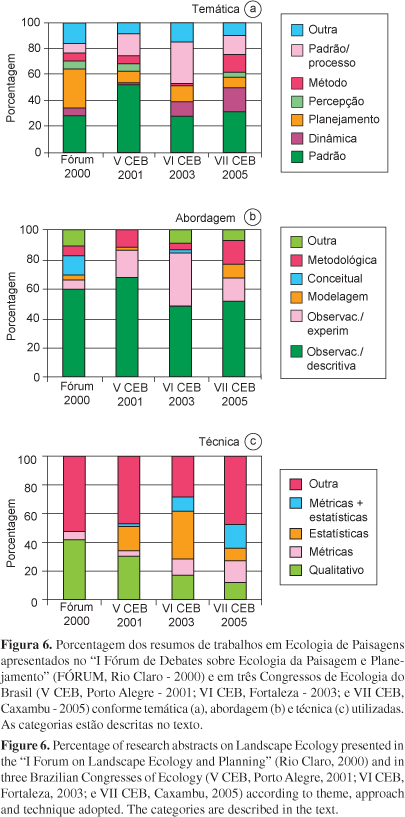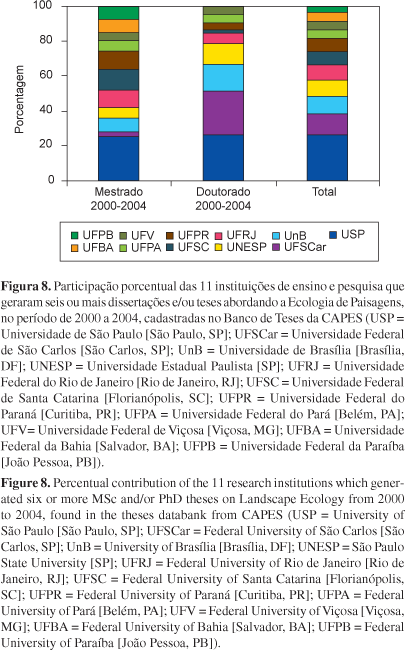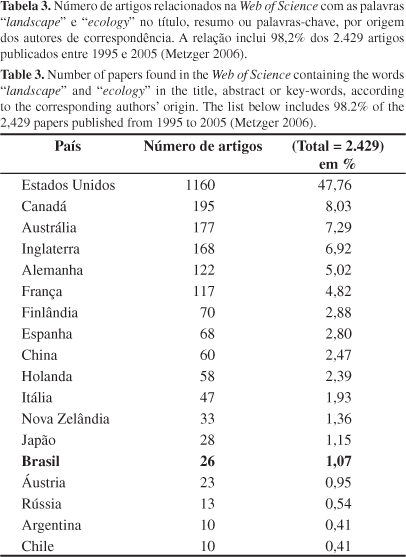Landscape Ecology seeks to understand the influence of environmental spatial heterogeneity on ecological processes, emphasizing human actions on the environment or the spatial context on biological species. It is a new science still consolidating concepts which makes strong use of technological improvements in remote sensing and geographical information systems. Aiming at verifying the main themes, methodological approaches and techniques that are being used in Landscape Ecology in Brazil, as well as the research institutes involved, we carried out a survey and analyzed the abstracts on Landscape Ecology researches submitted to the main national scientific meetings where this subject was discussed (years 2000-2005), and the abstracts of MSc and PhD theses produced from 2000 to 2004. The abstracts were classified according to 7 themes, 7 methodological approaches and 5 techniques of analysis. We analyzed 226 congress abstracts and 222 theses abstracts, from which most dealt with the description of spatial patterns, the relationships between patterns and processes, and environmental planning. A descriptive approach and the use of qualitative techniques or simple quantifications (measurements and percentages) prevailed. Less than 20% of the studies used quantitative techniques under an experimental approach, but a growing tendency on the use of quantitative procedures was verified throughout the years. Comparing both the research institutes where the theses were produced and those represented in the meetings with the research institutes which appear in the CNPq research groups database we noticed a low correspondence among them. We also verified that the Brazilian contribution in the Landscape Ecology scientific production worldwide is still very small, probably due to the prevailing descriptive nature of the current researches. We believe that the growth of Brazilian research in Landscape Ecology must go beyond the description of patterns, and that clear scientific hypotheses must be established and tested quantitatively in future researches.
landscape; scientific review; state of the art; thematic classification; methodological approach; techniques of analysis

 Analysis of the research on Landscape Ecology in Brazil (2000-2005)
Analysis of the research on Landscape Ecology in Brazil (2000-2005)









